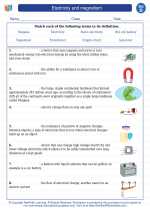Electricity and magnetism -> blood
Blood
Blood is a vital fluid that circulates through the body, delivering essential substances like oxygen and nutrients to the cells and carrying away waste products. It is also involved in regulating body temperature, fighting infections, and maintaining homeostasis.
Composition of Blood
Human blood is composed of several key components:
- Red Blood Cells (RBCs): These cells contain hemoglobin, a protein that binds to oxygen and carries it to the body's tissues.
- White Blood Cells (WBCs): These cells are part of the immune system and help the body fight infections and foreign invaders.
- Platelets: These cell fragments are involved in blood clotting and help to stop bleeding when a blood vessel is injured.
- Plasma: This is the liquid component of blood, composed mainly of water, but also containing proteins, hormones, and waste products.
Blood Types
Human blood is classified into different blood types based on the presence or absence of certain antigens on the surface of red blood cells. The most common blood type system is the ABO system, which includes blood types A, B, AB, and O. Additionally, blood is also classified by the Rh factor, resulting in eight main blood types (A+, A-, B+, B-, AB+, AB-, O+, O-).
Functions of Blood
Blood performs several critical functions in the body, including:
- Transport: Blood carries oxygen, nutrients, hormones, and waste products to and from the body's cells.
- Protection: White blood cells and antibodies in the blood help defend the body against infections and foreign substances.
- Regulation: Blood helps regulate body temperature, pH levels, and fluid balance.
Study Guide
To study the topic of blood, consider the following key points:
- Understand the composition of blood, including the different types of blood cells and plasma.
- Learn about the functions of each component of blood and how they contribute to overall health and well-being.
- Explore the concept of blood types and their significance in blood transfusions and organ transplants.
- Consider the importance of blood in maintaining homeostasis and supporting various bodily functions.
- Review common blood-related disorders and diseases, such as anemia, leukemia, and hemophilia.
By understanding the composition, functions, and importance of blood, you can gain a comprehensive understanding of this essential bodily fluid.
[Blood] Related Worksheets and Study Guides:
.◂Science Worksheets and Study Guides Fourth Grade. Electricity and magnetism
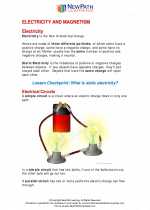
 Activity Lesson
Activity Lesson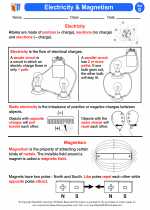
 Worksheet/Answer key
Worksheet/Answer key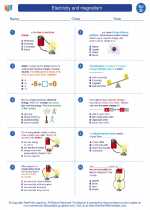
 Worksheet/Answer key
Worksheet/Answer key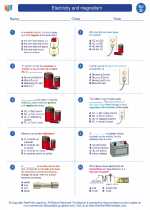
 Worksheet/Answer key
Worksheet/Answer key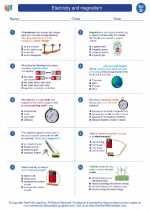
 Worksheet/Answer key
Worksheet/Answer key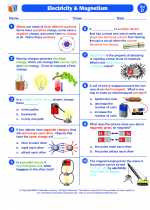
 Vocabulary/Answer key
Vocabulary/Answer key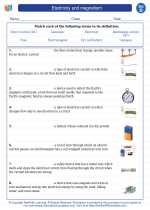
 Vocabulary/Answer key
Vocabulary/Answer key